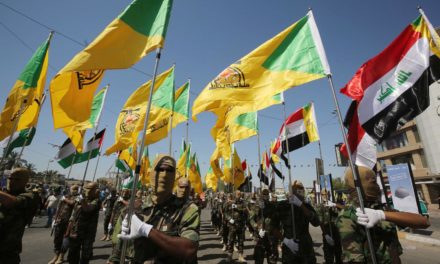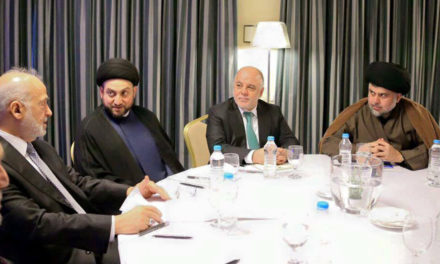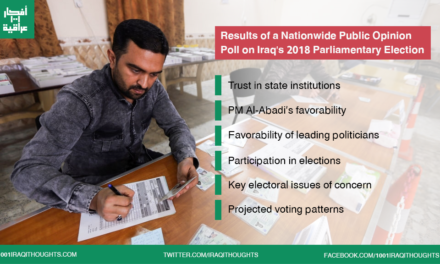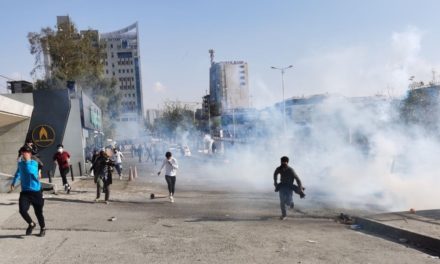(Photo: KurdSat English)
The Patriotic Union of Kurdistan (PUK) held its fifth congress last month. The party, founded in 1975, has long been heralded for its pluralism and inclusivity, but is now redefining itself as a more autocratic party, mirroring its long-standing rival, the Barzani-led Kurdistan Democratic Party (KDP). The re-election of Bafel Talabani, as the president of the PUK, consolidates his leadership and marks a new era for politics in Iraqi Kurdistan.
Jalal Talabani’s PUK
To understand the significance of what happened in Sulaymaniyah last month, it is important to understand the history of the PUK. While it was led by Bafel’s late father, (Mam) Jalal Talabani, the party was able to accommodate a variety of opinions and factions. The PUK has long been perceived as the more liberal wing of Kurdish politics and was founded on the amalgamation of several parties, the two most prominent of which are Komala and the Kurdistan Socialist Movement. Each component held a distinct identity and leadership with shared ideology, but they united around the leadership of Mam Jalal. The unifying leadership of Mam Jalal extended beyond Kurdish politics and into federal Iraqi politics, bringing opposition parties together and later helping lead coalition governments, as the President of Iraq from 2005 to 2014.
Being a unifying leader within his own party and a convener of other parties reflected Mam Jalal’s tactful diplomacy. The transition of the party today, which is nominally led by a Talabani, is a shift from pluralistic leadership and party organization to a more authoritarian one.
The splintering of the PUK began late in Mam Jalal’s life when one of the party’s co-founders, Nawshirwan Mustafa, left and founded the Change Movement (Gorran) in 2009. Gorran was born out of Mustafa’s disappointment in Mam Jalal’s performance as party leader and Iraqi president and was the first major challenge not only to the PUK, but to the political dynamic of Iraqi Kurdistan. There would be further splits from the PUK after the death of Mam Jalal in 2017, when Barham Salih formed his own political party in 2018.
The Rise of Bafel Talabani
Mam Jalal was the leader of the PUK for decades and he had family members present in the party. For example, his brother-in-law, Latif Rashid was a senior member of the party since its founding and is now the president of Iraq. His niece, Ala Talabani, was elected as an MP for the PUK for multiple elections. And, his youngest son, Qubad Talabani, was head of the Kurdistan Regional Government (KRG) representation in Washington D.C. for many years. However, there were many other senior members throughout the party that were not related by blood or marriage, and it was only after Mam Jalal fell ill in 2012, did his immediate family take a more prominent role in the party. Mam Jalal’s wife, Hero Ibrahim, became de-facto leader of the PUK, paving the way for Qubad to become deputy prime minister of the KRG in 2014, a position he holds to this day.
The most significant development that settled the fate of the party as a Talabani family dynasty was the arrival of Bafel Talabani to the political scene. Despite being the eldest son, Bafel was not well known. He entered the scene in the fall of 2017 in deescalating the tension between the KRG and the federal government after the Kurdish independence was held. He then helped the PUK maintain the Iraqi presidency in 2018 by bringing Salih back into the party fold.
Having Salih return to the party and become president of Iraq took significant political maneuvering from Bafel, making him a political figure in Baghdad that could not be ignored. This would lead to the formal election of Bafel as co-president of the PUK alongside his cousin Lahur Talabani in 2019. However, this arrangement did not last long, as Bafel sidelined his cousin and allies in the party in the summer of 2021. This was not easy as Lahur enjoyed popularity amongst the Kurdish population and led the PUK’s intelligence service (the Zanyari), as well as the counter-terrorism forces.
Removing Lahur from the party and from the military institutions was messy and, at times, violent. At the PUK congress in September 2023, Bafel not only made sure he remained the sole president of the party, but he also reduced the leadership council of the party to a mere shadow of its former self. Bafel will lead the PUK in its new phase at a time when many crucial events will take place, including the upcoming provincial council elections this December and Iraqi Kurdistan parliamentary elections the next year. How the PUK performs in these upcoming elections will determine how much power Bafel will hold over state resources that will help feed his patronage networks.
What the Future Holds
Bafel’s ascendancy comes at a time where there is public fatigue with offshoots of the PUK like Gorran and the party Salih founded, the Coalition for Democracy and Justice. His main competitor from within Sulaymaniyah is the New Generation Movement. However, Bafel has managed to cultivate strong ties with Shia parties in Baghdad. Consequently, Bafel could play a pivotal role in Iraqi politics. If Bafel’s consolidation of power in Sulaymaniyah and alliances in Baghdad lead to better outcomes for his corner of Iraqi Kurdistan, he will be able to reshape the balance of power and weaken the KDP.
In the event of Bafel’s potential failure to improve life in Sulaymaniyah, this could lead to an opportunity for the KDP to challenge him on his own turf. It also provides an opening for smaller armed actors in Sulaymaniyah outside of the PUK’s sphere of influence. In which case, the repercussions of such instability may reverberate throughout Iraq.
The PUK, along with the KDP, operate as a unique hybrid, blurring the lines between political parties and government entities. This unique status has granted them a complete monopoly over state resources, making it difficult to establish a unified armed force, consolidate a security apparatus, and create an effective intelligence network for the KRG. These challenges persist as both the PUK and the KDP remain unwilling to relinquish control over these vital resources. Furthermore, the marginalized voices within the PUK are showing signs of restlessness. If Bafel’s leadership falters, it could lead to another splintering from the PUK.
If the PUK’s experience is anything to go by, it shows how messy leadership transitions are and how difficult it is to consolidate power, especially when there are cousins vying for power. A similar scenario will play out with the KDP between Masrour Barzani and Nechirvan Barzani when their father and uncle respectively, Masoud Barzani, eventually passes away. It has been a shaky start to Bafel’s political career, but steadying the ship in Sulaymaniyah could mean he has a head start on his KDP rivals when it comes time for them to adjust to new leadership.

Sarkawt Shamsulddin
Sarkawt Shamsulddin is a former member of the Iraqi Council of Representatives (2018-2021). He is a non-resident fellow At Atlantic Council. He was a co-founder of the New Generation Movement.










